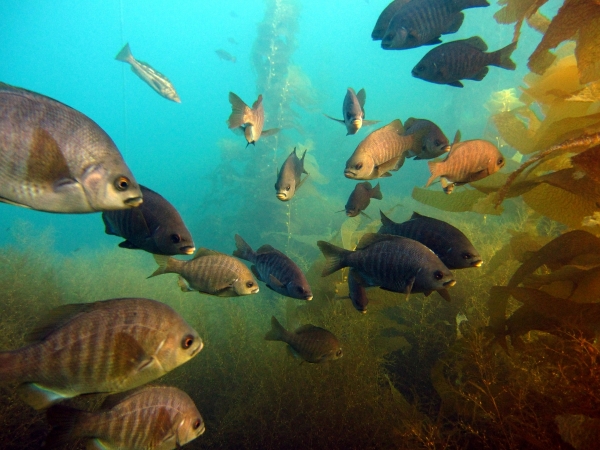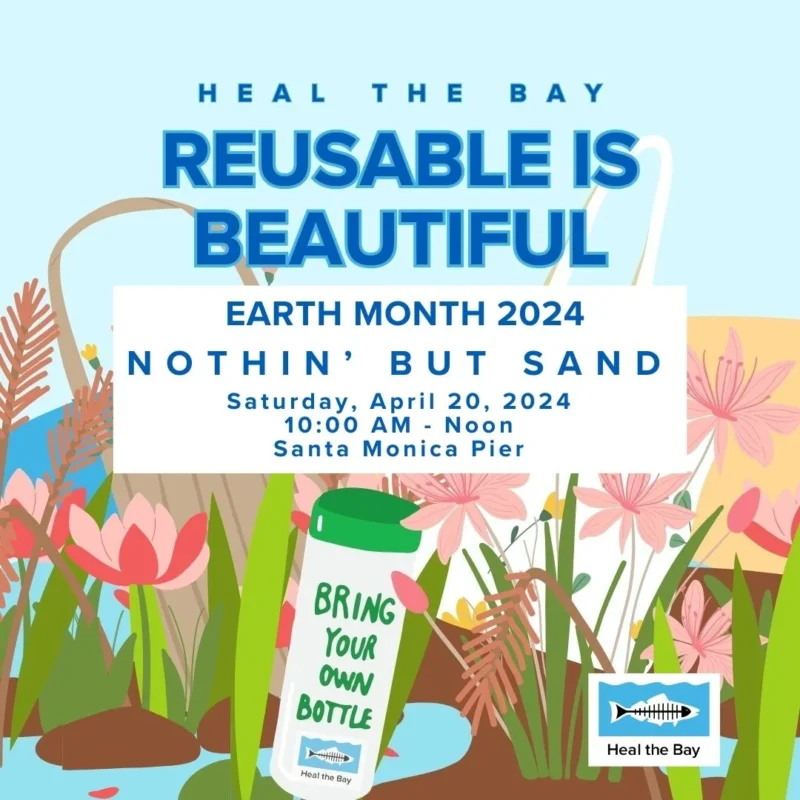The Tragedy of the Commons at Sea
Heal the Bay CEO Ruskin Hartley reveals the magic of marine protected areas:
This week, Sarah Sikich, one of Heal the Bay’s scientists, is in France at an international conference discussing Marine Protected Areas — MPAs in the vernacular of ocean conservancy. I was aware of them from my work along the redwood coast, as Save the Redwoods League owned land adjacent to an MPA in Sonoma County. But I’ve never thought much about them. Turns out Heal the Bay has been a leader in development of these so-called Yosemites of the Sea here in Southern California. And MPAs are pretty fascinating. Trust me.
MPAs are a simple and elegant solution to a thorny problem. Over the years, society has over-fished the oceans. Along the way fish stocks have collapsed, harvests have been reduced, and the actual fish caught have become smaller. It’s been bad for the ocean, bad for the fishery industry, bad for folks who recreate on the ocean, and bad for anyone who eats fish. And that’s pretty much everyone!
It’s also a classic “tragedy of the commons” problem. Basically, each individual fisherman sees direct benefit from landing extra fish while the consequences of reduced catch are spread over everyone else. It’s the same principle as people getting into their car in a busy metropolis even though they know it contributes to gridlock and local air pollution.
Traditionally, fishery regulation has relied on a species-by-species approach. This simply pushes the problem off to another species. It’s the same model we have for endangered species on land. And many smart conservationists now agree that neither approach works well. Fortunately because the ocean is a commons, we have the chance to try new solutions.
MPAs shift the thinking from individual species to entire ocean systems. Basically you set aside areas of the ocean as no-fishing zones. Put these in the right place and with the right configuration and they become nurseries for fish. You get more fish, bigger fish, and they have more young. Not only is this good for fishermen, but it’s good for conservation of the ocean system as a whole. What’s more the science has shown this works.
Over the last few years, California has established a network of 123 MPAs that cover 16 percent of state waters. Here in Southern California, we helped establish MPAs off Palos Verdes, Point Dume and Catalina Island. Worldwide there are now 5,000 MPAs across 80 countries. It’s a great start and we’re already starting to see fish stocks recover.
But MPAs in state waters cover only a tiny fraction of the oceans. State-waters extend out three miles. Federal waters 200 miles. And then it’s a free for all. The big question I have is whether the international community can come together to forge an agreement to extend what works at a state and federal level. Ultimately, we can all do our part, but it’s going to take coordinated global action to save our oceans.
If you want to get more involved, please consider volunteering for our group of citizen scientists who gather data in our MPA Watch program.
 Black perch congregate in MPA off Catalina Island
Black perch congregate in MPA off Catalina Island



